The Egyptian army has given the islamist president Morsi 48 hours to meet the demands of the people, saying any longer will lead to deep divisions.
It said the ultimatum was a “last chance”, otherwise the army would put forward a political road map for the country and ensure it is carried out.
However, a coalition of Islamist parties, including the Muslim Brotherhood of President Mohamed Morsi, accused the military of attempting to “assault legitimacy”.
In a statement, the army denied its commander had called for a military coup and said his aim was only to push politicians to reach consensus.
Denying any political ambitions for itself, the military said it was responding to the “pulse of the Egyptian street” in issuing an ultimatum to political leaders to unite after mass rallies on Sunday against the president.
Protesters welcomed the army’s stance, with cheers erupting in Cairo’s Tahrir Square, the centre of fierce demonstrations against President Mohamed Morsi, who are they have been demanding resigns after a year in power.
The crowds also cheered as five military helicopters trailing national flags circled over the capital.
Military chief Abdul Fattah al Sisi said the political roadmap would be an “inclusive” one.
“The armed forces repeat its call for the people’s demands to be met and give everyone 48 hours as a last chance to shoulder the burden of a historic moment for a nation that will not forgive or tolerate any party that is lax in shouldering its responsibility,” the army said in a statement.
It did not directly define “the people’s demands”, but said if they are not realised, the military would be obliged to “announce a road-map for the future and the steps for overseeing its implementation, with participation of all patriotic and sincere parties and movements”.
The call came as four ministers resigned from Egypt’s ruling cabinet amid the huge protests.
The ministers of tourism, environment, communication and legal affairs handed in their letters of resignation together to Prime Minister Hisham Qandil.
Journalist Tim Marshall, in Cairo, said: “This is the army blatantly interfering in the political life of the country, they would say in their role as guardians of the people.
“They’re not saying they’re going to have a coup. They’re saying, ‘If you guys can’t sort it out we’ll give you the map, you better follow it.’.”
The Cairo headquarters of the Muslim Brotherhood were stormed and ransacked by protesters on Sunday night, leaving the heavily fortified villa with furniture and files.
Footage on local TV networks showed smashed windows and smoke billowing out of the building. One protester was seen removing the Muslim Brotherhood sign from the building’s front wall.
The Muslim Brotherhood says it is considering sending self-defence units to protect the building.
The storming of the headquarters followed overnight clashes between armed supporters of Mr Morsi barricaded inside the building and young protesters pelting it with firebombs and rocks.
At least seven people have reportedly been killed and more than 600 wounded in clashes between supporters and opponents of the president.
Some 500,000 people have descended on Tahrir Square, the heart of the 2011 uprising against Mr Morsi’s predecessor Hosni Mubarak.
Other demonstrations have been held outside the presidential palace several miles away, which was under heavy guard.
Organisers of the protests have given the president until 5pm on Wednesday to step down, and called on the police and the military to clearly state their support for what the protest movement called the popular will.
Police and troops have deployed to protect key buildings around the country, and the health ministry said hospitals have been placed on high alert.
On Friday an American student, 21-year-old Andrew Pochter, was killed during clashes in the city of Alexandria.
A senior security official said the Suez Canal, the vital waterway that connects the Mediterranean with the Red Sea, has been placed under “maximum security”.
Liberal leaders say nearly half the voting population – 22 million people – have signed a petition calling for change. Mr Morsi’s opponents have promised a “second revolution”.
But the president’s Muslim Brotherhood and militant allies pledge to defend what they say is the legitimate order.
Mr Morsi has called his opponents bad losers backed by “thugs” from the rule of deposed Mr Mubarak.
He is banking on the “Tamarud – Rebel!” coalition fizzling out, as other challenges in the streets have done since he took power.
US President Barack Obama has called on Egyptians to focus on dialogue. His ambassador to Egypt has angered the opposition by suggesting protests are not helping the economy.
[adrotate banner=”64″]
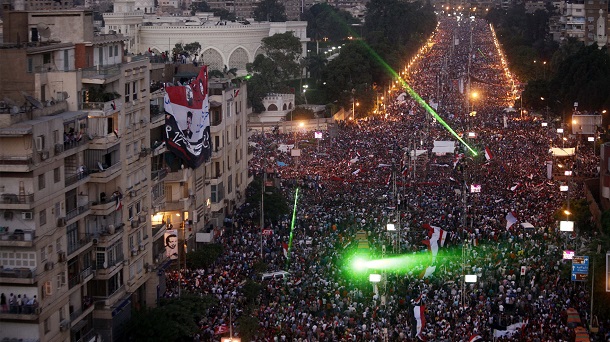
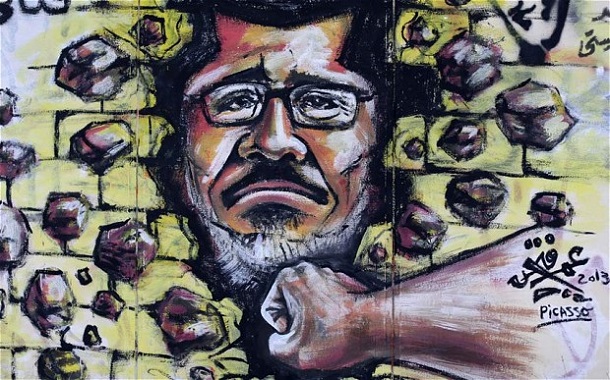
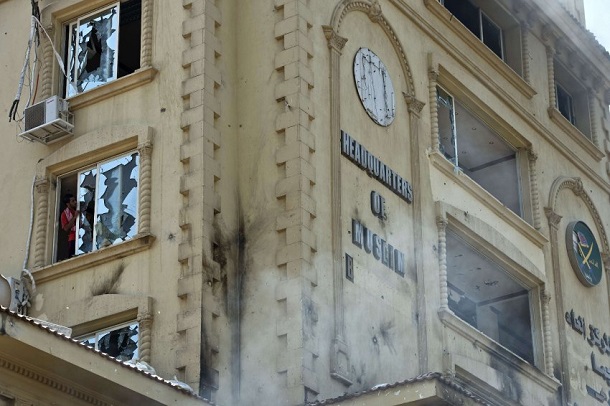
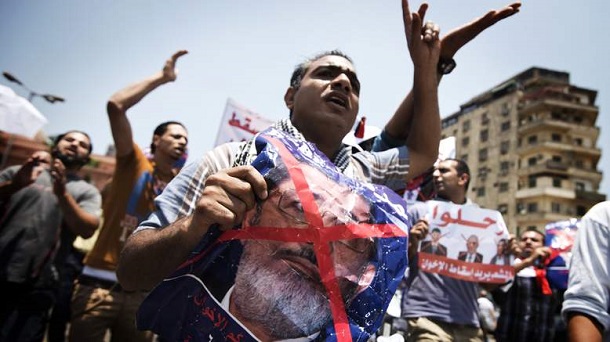
 Schengen Visa is now on the black market
Schengen Visa is now on the black market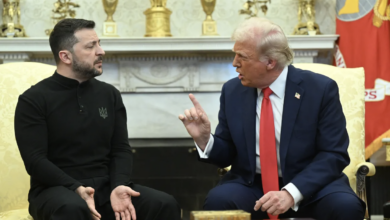 Donald Trump says Zelensky ‘come back when he is ready for Peace’
Donald Trump says Zelensky ‘come back when he is ready for Peace’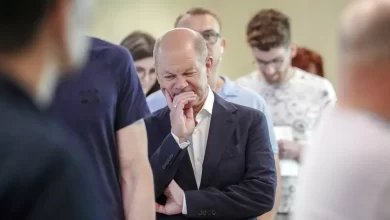 German elections and why this vote is important
German elections and why this vote is important Turkey Arrests Three Opposition Journalists
Turkey Arrests Three Opposition Journalists